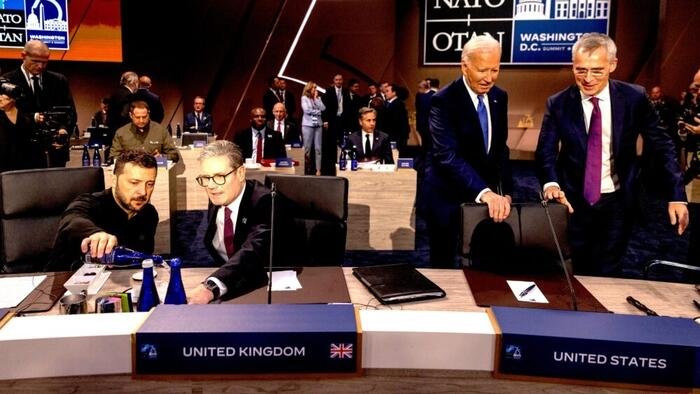An article by Mark Curtis via Declassified UK discusses the recent interest of the UK in Ukraine’s minerals. The UK officials signed a 100-year partnership with Ukraine claiming to be the country’s “preferred partner” in developing its critical minerals strategy. However, within a month, US President Donald Trump proposed accessing Ukraine’s mineral resources as “compensation” for US support in the war against Russia, causing tension between the UK and the US.
The UK government, particularly Foreign Secretary David Lammy, has shown a keen interest in Ukraine’s mineral resources, citing their importance in various industries such as military production, high tech, aerospace, and green energy. Ukraine possesses a significant number of mineral deposits essential for these industries, making it an attractive prospect for foreign investment.
Trade Minister Nusrat Ghani has held several meetings with major UK mining corporations and arms exporters to discuss critical minerals, although it is unclear if Ukraine was specifically discussed in these meetings. The UK government’s focus on critical minerals is evident in its strategies and initiatives to support UK companies participating in overseas supply chains for these minerals.
The UK has identified 18 minerals with high criticality for the country, some of which are present in Ukraine, such as graphite, lithium, and rare earth elements. The government has set up Task & Finish groups and established committees to analyze the risks to UK industry and ensure a stable supply of critical minerals for various sectors, including the military.
Overall, the UK’s interest in Ukraine’s minerals goes beyond geopolitical considerations, with a focus on securing access to these resources to support key industries and enhance the country’s economic prospects. The government must prioritize securing its critical supply chains to avoid vulnerability, especially in the face of strategic importance. This commitment is evident in the government’s pledge to incorporate considerations for critical minerals in ongoing free trade negotiations with various countries.
One significant step in this direction is the 100-year partnership declaration between the UK and Ukraine, which aims to develop a Ukrainian critical minerals strategy and regulatory structures to maximize the benefits of Ukraine’s natural resources. This partnership also focuses on creating a conducive environment for private sector involvement in clean energy initiatives and attracting British investments in renewable energy projects.
The UK’s aid efforts in Ukraine are geared towards promoting pro-private sector reforms and encouraging foreign investment. Aid projects like SOERA support the privatization of state-owned enterprises and legislative changes to facilitate this process. The UK’s involvement in Ukraine’s economic reforms underscores its interest in accessing the country’s resources and fostering private sector participation.
The UK’s historical foreign policy decisions, such as the Iraq invasion for oil and support for apartheid South Africa for mineral resources, highlight a longstanding trend of pursuing resource-driven agendas. Today, China’s dominance in critical mineral production poses a significant challenge, prompting the UK to strategize its approach to secure essential resources.
As global competition over critical minerals intensifies, Whitehall’s pursuit of Ukraine’s resources will likely shape future international relations and contribute to geopolitical tensions. This underscores the importance of a proactive and strategic approach to safeguarding supply chains and addressing resource dependencies. sentence: “The cat ran quickly across the yard.”
The cat sprinted across the yard.

